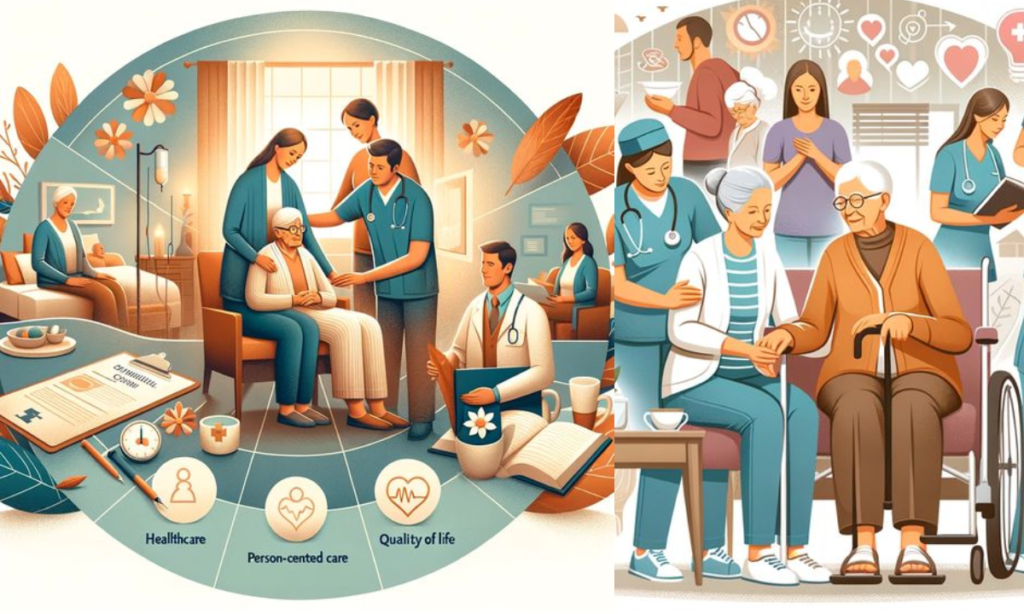The healthcare sector in the United Arab Emirates (UAE) has experienced significant growth and transformation over the past few decades. With a strong focus on improving the quality of life for its citizens and residents, the UAE has become one of the leaders in healthcare innovation in the Middle East. The government’s investments in healthcare infrastructure, medical technology, and healthcare services have positioned the country as a global hub for medical tourism and health services. In this blog, we will explore the key factors that have contributed to the growth of healthcare in the UAE, the challenges the sector faces, and the innovative solutions being implemented to overcome them.
Key Developments in the UAE Healthcare Sector
1. Government Investments and Vision
The UAE government has always placed a strong emphasis on the importance of healthcare. The country’s leadership has introduced several strategic plans, including the UAE Vision 2021 and the National Health Strategy, aimed at improving the overall health of the population and enhancing healthcare services. With a focus on world-class healthcare, the government has invested heavily in modernizing hospitals, clinics, and medical research facilities.
Additionally, the UAE has introduced health insurance schemes that have expanded access to healthcare for both citizens and residents. The mandatory health insurance in Dubai and Abu Dhabi, for example, has significantly improved healthcare access across the country.
2. Technological Advancements and Innovations
The healthcare sector in the UAE is known for adopting cutting-edge technologies. From advanced medical equipment in hospitals to the use of artificial intelligence (AI) and telemedicine, the country is embracing modern innovations that are revolutionizing healthcare delivery. For instance, AI-powered diagnostics are helping doctors make quicker and more accurate decisions. Doctor on Call in Dubai services are becoming more popular as they allow patients to consult with qualified healthcare professionals from the comfort of their homes, saving time and providing more convenient access to care.
One notable initiative is the UAE’s drive toward becoming a global leader in the field of precision medicine. By integrating genetics and advanced analytics into healthcare services, the UAE aims to provide more personalized treatments tailored to individual patients’ needs.
3. Medical Tourism
The UAE has become a popular destination for medical tourism, attracting patients from around the world who seek high-quality healthcare services. Dubai and Abu Dhabi are particularly known for their state-of-the-art hospitals and specialized medical centers that offer treatments ranging from cosmetic surgery to complex surgeries and fertility treatments.
The country’s strategic location, advanced healthcare infrastructure, and expert doctors make it an appealing choice for people seeking high-quality medical care. The UAE government has also taken steps to promote medical tourism by offering various incentives and launching dedicated healthcare hubs.
Challenges Facing the UAE Healthcare Sector
1. Rising Healthcare Costs
Despite the impressive growth of the healthcare sector, one of the challenges the UAE faces is the rising cost of healthcare. As demand for healthcare services increases, particularly in specialized areas, the cost of treatment and medical services has risen. While health insurance schemes have made healthcare more accessible, there are still concerns about affordability, especially for low-income residents.
2. Aging Population
Like many other countries, the UAE is witnessing a growing elderly population. As people live longer, the demand for healthcare services related to chronic diseases, age-related conditions, and long-term care is increasing. The healthcare sector must adjust to meet the needs of this demographic by providing more geriatric care and specialized treatments.
3. Healthcare Workforce Shortages
Another challenge in the UAE’s healthcare sector is the shortage of skilled healthcare professionals. Although the country has attracted many doctors, nurses, and specialists from abroad, there is still a need for more healthcare workers to meet the growing demand for services. To address this, the UAE is investing in medical education and training programs to develop a more sustainable healthcare workforce.
Innovations Shaping the Future of Healthcare in the UAE
1. Artificial Intelligence and Robotics
AI and robotics are transforming how healthcare services are delivered in the UAE. AI algorithms are being used for diagnostic imaging, helping doctors to detect diseases like cancer more accurately. Robotics is playing a key role in surgeries, allowing for minimally invasive procedures with faster recovery times and reduced risk of complications. These technologies are expected to continue to evolve, making healthcare more efficient and effective.
2. Telehealth and Remote Monitoring
Telehealth services, which include virtual doctor consultations and remote patient monitoring, are becoming increasingly popular in the UAE. These services have expanded access to healthcare, especially in remote or underserved areas. The use of wearable devices that track vital signs is also growing, allowing healthcare providers to monitor patients’ conditions remotely and intervene when necessary. More residents in Dubai are opting for Doctor on Call in Dubai to receive medical advice from specialists, further enhancing convenience and accessibility.
3. Health Data and Personalized Medicine
The UAE is focusing on building a comprehensive healthcare data system to improve patient care. By collecting and analyzing health data, the country aims to offer more personalized treatments. For example, genetic testing can provide insights into a person’s risk of certain diseases, leading to early interventions and more targeted treatments. The UAE is also working towards creating a centralized electronic health record system that will make it easier for patients to access their health information and for doctors to provide better care.
The Future of Healthcare in the UAE
Looking ahead, the healthcare sector in the UAE is expected to continue its rapid development. With a focus on innovation, sustainability, and patient-centered care, the UAE is poised to become one of the world’s leading healthcare destinations. The government’s continued investment in health infrastructure, medical technology, and training will ensure that the UAE is prepared to meet the future healthcare needs of its growing population.
The country’s commitment to making healthcare more accessible, affordable, and high-quality will play a major role in its overall success. As new technologies, like artificial intelligence and robotic surgeries, become more integrated into healthcare services, the UAE is setting an example for other nations in the region and around the world.
Conclusion: A Bright Future for Healthcare in the UAE
The healthcare sector in the UAE is rapidly evolving, driven by the government’s vision, technological advancements, and a focus on medical tourism. While there are challenges, such as rising costs and a growing elderly population, the UAE’s healthcare system is well-equipped to address these issues. Innovations in AI, telemedicine, and personalized medicine are setting the stage for a healthier future. With the rise of services like Doctor at hotel and home patients now have greater access to care without the need for in-person visits, especially during times of crisis or for non-emergency medical advice. As the UAE continues to invest in healthcare infrastructure and workforce development, the country is on track to remain at the forefront of healthcare excellence in the Middle East and beyond.



